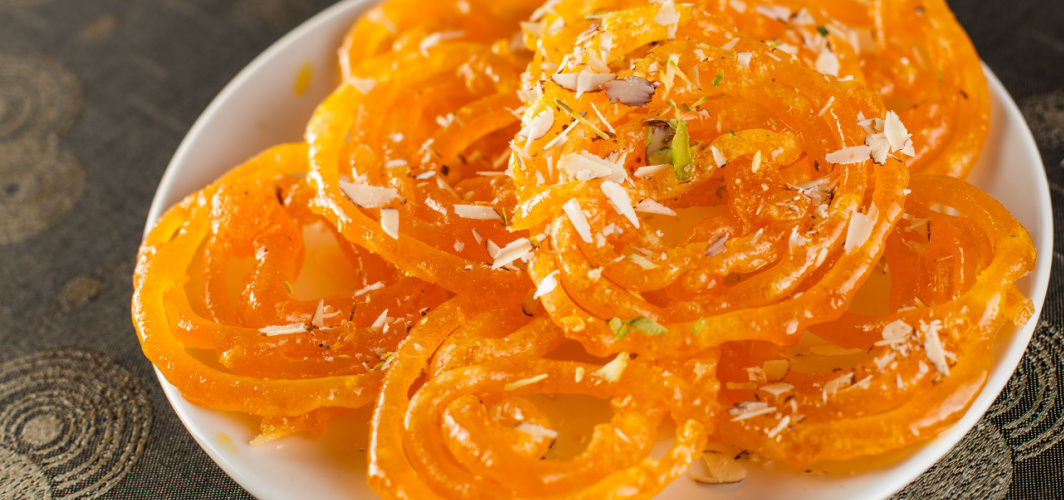Diabetes Management
Enjoy Navratri With These Diabetes-Friendly Sweets
2 min read
By Apollo 24|7, Published on - 18 October 2023, Updated on - 16 September 2025
Share this article
0
1 like

The temptation of indulging in sugary delights can be too tough to resist during Navratri. However, it always helps to be more mindful of your sugar intake, especially if you are someone living with diabetes or are at risk of developing it.
In this blog, let’s delve deeper to understand a few options that can be helpful in managing your cravings:
1. Almond and Coconut Ladoos:
- These laddoos are made from a combination of almonds, desiccated coconut, and a sugar substitute. Almonds are rich in healthy fats and protein, while coconut adds a delightful flavour.
- Using a sugar substitute, like stevia or erythritol, can help maintain sweetness without the spike in blood sugar.
2. Dates and Nuts Barfi:
- Dates, when combined with a variety of nuts like almonds and walnuts, create a delicious and nutritious barfi.
- Dates provide natural sweetness, and nuts offer healthy fats and fibre, helping stabilize blood sugar levels.
3. Semolina (Sooji) Halwa:
- Sooji halwa can be prepared with a sugar substitute and a moderate amount of ghee (clarified butter).
- Incorporating cardamom and a few saffron strands enhances the flavour without adding extra sugar.
4. Yogurt Parfait:
- Layering low-fat yoghurt with fresh berries, a sprinkle of cinnamon, and a few crushed nuts can make for a delightful parfait.
- Yoghurt is a source of protein, and berries are low in sugar and high in antioxidants.
5. Jaggery-Based Sweets:
- Some people with diabetes find that jaggery (unrefined sugar) has a milder impact on blood sugar than regular sugar.
- Sweets made with jaggery, like til (sesame) laddoos, can be a better choice, but portion control is key.
6. Baked Sweets:
- Opt for baked versions of traditional sweets instead of fried ones. Baked shakarpara or baked chakli can be made with whole wheat flour and less oil.
- Baking reduces the amount of unhealthy fats and lowers the glycemic index.
7. Fresh Fruit Chaat:
- A colourful fruit chaat with a sprinkle of chaat masala and a dash of lemon juice can be a refreshing and healthy sweet option.
- Fruits like papaya, apple, and pomegranate have natural sweetness and provide vitamins and fibre.
8. Saffron-Infused Milk:
- Warm saffron-infused milk with a touch of cardamom and a pinch of a sugar substitute makes for a soothing and naturally sweet beverage.
- Saffron adds a unique flavour, and the sugar substitute ensures it's diabetes-friendly.
Conclusion
When preparing or choosing sweets for Navratri, always consider portion sizes and the type of sweeteners used. Using sugar substitutes or natural sweeteners like jaggery can help limit the impact on blood sugar. Moreover, maintaining a balanced diet, regular physical activity, and monitoring blood sugar levels are essential during this festive season. With these diabetes-friendly sweet options, you can savour the festivities while keeping your health in check.
Diabetes Management
Consult Top Diabetologists
View AllLeave Comment
Recommended for you

Diabetes Management
Diabetes Symptoms: Educate Yourself On The Early Warning Signs
Understanding the early warning signs of diabetes is crucial. These symptoms include increased thirst, frequent urination, unexplained weight loss, fatigue, and blurred vision. It's vital to recognise these signs and seek medical attention if you experience them, as early diagnosis and management are key to preventing complications. Diabetes can be managed effectively through lifestyle changes and medications, but early intervention is the first step toward a healthier future.

Diabetes Management
10 Simple Lifestyle Changes To Lower Your Risk of Diabetes
Type 2 diabetes can usually be prevented by taking some simple steps. Lifestyle changes such as reducing carb intake, exercising regularly, reducing portion sizes, consuming a high-fibre diet, limiting alcohol consumption, and incorporating healthy fats can significantly reduce the risk of diabetes.

Diabetes Management
Can One Develop Diabetes at a Young Age?
Diabetes is not limited to older age, people can develop the condition at a young age too. Type 1 diabetes, often diagnosed in childhood or adolescence, is an autoimmune condition, while Type 2 diabetes, increasingly affecting young people, is often linked to obesity and lifestyle factors. Risk factors include family history, obesity, sedentary behaviour, an unhealthy diet, and hormonal changes during puberty. Prevention and management involve a healthy lifestyle, regular check-ups, family support, and education about diabetes risks. It's crucial to recognise that diabetes can affect individuals of all ages, including teenagers and even children.
Subscribe
Sign up for our free Health Library Daily Newsletter
Get doctor-approved health tips, news, and more.
Visual Stories

8 Fruits That are Incredibly Healthy for Diabetes
Tap to continue exploring
Recommended for you

Diabetes Management
Diabetes Symptoms: Educate Yourself On The Early Warning Signs
Understanding the early warning signs of diabetes is crucial. These symptoms include increased thirst, frequent urination, unexplained weight loss, fatigue, and blurred vision. It's vital to recognise these signs and seek medical attention if you experience them, as early diagnosis and management are key to preventing complications. Diabetes can be managed effectively through lifestyle changes and medications, but early intervention is the first step toward a healthier future.

Diabetes Management
10 Simple Lifestyle Changes To Lower Your Risk of Diabetes
Type 2 diabetes can usually be prevented by taking some simple steps. Lifestyle changes such as reducing carb intake, exercising regularly, reducing portion sizes, consuming a high-fibre diet, limiting alcohol consumption, and incorporating healthy fats can significantly reduce the risk of diabetes.

Diabetes Management
Can One Develop Diabetes at a Young Age?
Diabetes is not limited to older age, people can develop the condition at a young age too. Type 1 diabetes, often diagnosed in childhood or adolescence, is an autoimmune condition, while Type 2 diabetes, increasingly affecting young people, is often linked to obesity and lifestyle factors. Risk factors include family history, obesity, sedentary behaviour, an unhealthy diet, and hormonal changes during puberty. Prevention and management involve a healthy lifestyle, regular check-ups, family support, and education about diabetes risks. It's crucial to recognise that diabetes can affect individuals of all ages, including teenagers and even children.